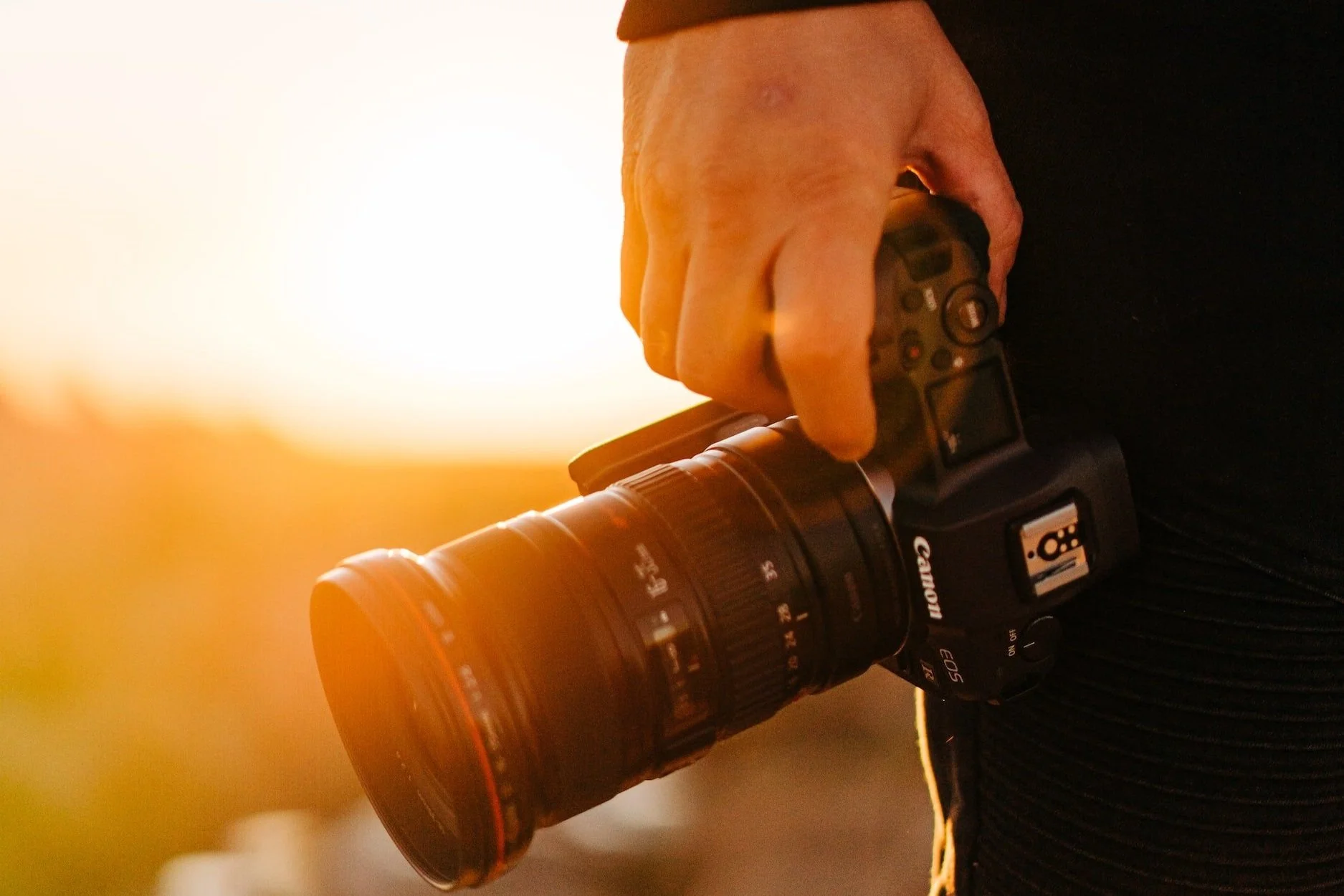IF I LOST MY CAMERA
Let me ask you something that’s been on my mind lately.
Not a marketing strategy.
Not gear talk.
Not algorithms.
A real question:
If you lost your camera tomorrow… would you still be a photographer?
It sounds dramatic, but it’s a litmus test I think every creative should take—especially those of us who’ve made our passion our business.
Because here’s the truth most of us quietly wrestle with:
Our identity gets wrapped up in our gear, our deliverables, our output.
We start equating our value with what we produce.
But let’s step back.
What Defines a Photographer?
Is it the equipment we carry?
The number of shoots booked this month?
The client list?
The size of the archive?
Or is it something deeper?
Here’s my take on it. Being a photographer is less about owning a camera and more about seeing like a photographer everywhere, always. It's how we notice the color shift in the sky before anyone else. It’s how we’re wired to find stories in shadow and light and how we instinctively frame the world even when there’s no viewfinder in front of us.
If that sounds like you - then even without a camera, you’re still doing the work.
The Trap of Productivity and the Pressure to Perform
In the creative industry, especially on platforms like LinkedIn, we often showcase the finished product.
The latest campaign.
The award-winning shot.
The behind the scenes reel that makes it all look seamless.
But the truth? Sometimes the most profound work we do doesn’t make it to the feed.
It happens internally:
In the way we grow as visual thinkers.
In how we develop patience with light, trust in instinct, and resilience in the face of missed shots or failed gear.
And yes, I’ll say it: Sometimes the best thing that can happen to us creatively…is to be forced to put the camera down.
The Perspective Shift
If I lost my gear tomorrow - what would I have left?
The vision.
The curiosity.
The discipline of noticing beauty in the ordinary.
I’d still walk early in the morning to chase fog. I’d still catch myself mentally framing scenes at dinner, on the train, in the middle of conversations. I’d still crave light the way a writer craves words. That’s not a job description. That’s an identity. It’s a muscle we build over years of paying attention.
For Creatives in Business: Your Tools Aren’t Your Talent
This is especially important if photography is your profession.
Because the longer we do this, the more the business side can dull the creative instinct.
We start prioritizing client work over personal exploration. We shoot for deliverables instead of wonder.
We stop seeing unless there’s a paycheck attached to it.
But you don’t build a career by clinging to gear. You build it by nurturing the eye - and the mindset - that sees value in every moment.
And when that mindset is strong, the camera becomes an amplifier, not a crutch.
So - What Would Happen If You Lost the Camera?
Would your creative spirit go with it?
Or would it keep showing up?
If that question challenges you - sit with it. It’s supposed to.
Because that’s the question that keeps us sharp, grounded, and honest about why we do what we do.
Final Thought: You Are the Work
At the end of the day, gear will come and go.
Clients will rotate. Platforms will change. Algorithms will confuse and frustrate.
But the way you see the world - that’s yours.
That’s the real product.
So yes. If I lost my camera tomorrow, I’d still be a photographer.
Because this isn’t something I do.
It’s who I am.
If you’re a fellow creative navigating this wild balance between art and commerce—I see you. And I hope this gives you a little room to breathe, to reflect, and to remember:
You are not your tools. You are your vision.
Keep showing up.

